AMS Leadership
Contact AMS Leadership
David Stensrud
David J. Stensrud currently serves as Professor of Meteorology in the Department of Meteorology and Atmospheric Science at The Pennsylvania State University. He started his career at the NOAA/National Severe Storms Laboratory where his early work explored the benefits of short-range ensemble forecasting for severe weather prediction. At NSSL he served as research meteorologist, team leader, chief of the Forecast Research and Development Division, and was the inaugural manager of the NOAA Warn-on-Forecast program. Stensrud became Head of the Department of Meteorology and Atmospheric Science at Penn State in 2014 and helped to increase department diversity, recently transitioning to Professor. Stensrud received his BA in Mathematics and Meteorology from the University of Wisconsin-Madison, and his MS and PhD in Meteorology from The Pennsylvania State University.
Stensrud has served AMS in various roles. He was a member and chair of the Committee on Mesoscale Processes, program co-chair for several conferences/symposia, Editor and Co-Chief Editor of Weather and Forecasting, Commissioner of the Scientific and Technological Activities Commission (STAC), and member of the Finance Committee. He is a listener and wants to hear from different voices before formulating next steps. David helped lead the proposal for STAC awards and is an advocate for getting regular feedback from members.
Stensrud is a recipient of the White House Presidential Early Career Award for Scientists and Engineers, the NOAA Distinguished Career Award, the AMS Clarence Leroy Meisinger and Charles Franklin Brooks awards and is an AMS Fellow. He has authored over 150 formal peer-reviewed publications and the book Parameterization Schemes: Keys to Understanding Numerical Weather Prediction Models.
David is a native of Minnesota, spent nearly 3 decades in Oklahoma, and now lives in Pennsylvania with his wife Audrey. He enjoys hiking, taking walks with their dog, reading, photography, traveling, and visiting family and friends.
Alan Sealls
Alan Sealls is an AMS Fellow, and CBM, retired in January 2024 from a 37-year career in broadcast meteorology. He most recently was Chief Meteorologist at WPMI-TV in Mobile. He is a sixteen-time regional Emmy winner who went viral on YouTube for his 2017 coverage of Hurricane Irma, with Reddit users proclaiming him “best weatherman ever!” The AMS awarded Alan with the Award for Excellence in Science Reporting for a three-part series he produced on climate change in 2009. He received the AMS Award for Broadcast Meteorology in 2019. His meteorology degrees are a B.S. from Cornell, and an M.S. from FSU.
Alan continues as an adjunct professor, teaching weather broadcasting at the University of South Alabama, each spring. Outside of his TV career, he has taught at the college level for 30 years. He is a member of the Cornell University Earth & Atmospheric Sciences Advisory Council. Alan was the 2018 President of the National Weather Association (NWA). He has served as both a Councilor and a Board Chair for both the AMS and the NWA. He was AMS Chicago Chapter President in 1998, and he was AMS Board Chair for the Broadcast Seal in 2010. From 2018-2021, Alan served on the AMS Fellows Selection Committee.
Alan Sealls is a guest lecturer on college campuses, and an invited presenter and panelist for weather and journalism conventions. He writes a weather column for Lagniappe Newspaper, and serves as a weather consultant and expert witness. Alan has authored three weather-themed books and produced over 100 weather videos used domestically and internationally by k-12 educators. Over the course of his career, he has visited more than 800 schools, promoting science and education, while sharing his love for weather.
M. Joan Alexander
Joan Alexander is Senior Research Scientist, Vice President, and Director at the NorthWest Research Associates (NWRA) Boulder Office where she has worked since 1998. She holds a simultaneous Adjoint Professor appointment at the University of Colorado, Atmosphere and Ocean Sciences where she advises students in their research. Directly after completing her PhD she held a Postdoctoral Faculty position at the University of Washington (UW) Atmospheric Sciences and became Research Assistant Professor at UW from 1994-1998, a time when she also taught courses in Dynamic Meteorology. After joining NWRA in 1998, she retained an affiliate faculty appointment at UW until 2011.
Joan has participated in ten aircraft and ballooning measurement field campaigns, and served on two NASA satellite science teams. Among other activities, she served as Co-Chair of the Scientific Steering Group for the Stratosphere-Troposphere Processes and their Role in Climate (SPARC) project of the World Climate Research Programme (WCRP), and has served as President of the Atmospheric Sciences Section of the American Geophysical Union (AGU). She also served as a member of the National Research Council's (NRC) Board on Atmospheric Sciences and Climate, and on other committees and special projects for the AMS, NRC, AGU, WCRP, SCOSTEP, and IAMAS. She was elected Fellow of the AMS in 2006, and became Fellow of the AGU in 2017.
Kristen Averyt
Kristen Averyt currently serves as the climate policy coordinator for the State of Nevada and is a research professor at University of Nevada, Las Vegas. As the top climate official in the state, she is responsible for coordinating climate activities across state agencies to support the governor’s Nevada Climate Initiative. Prior to her current role, Averyt served as president of the Desert Research Institute. She has also held positions at the University of Colorado Boulder, including as the associate director for science at CIRES (Cooperative Institute for Research in Environmental Sciences) and as the director of the Western Water Assessment—a NOAA Regional Integrated Sciences and Assessments Program. During this time, her research focused on characterizing risks at the energy–water nexus, as well as understanding linkages between climate and water resources.
In general, Averyt’s career has centered on connecting science with society and decision-making. As a graduate student, she was a Christine Mirzayan Science and Technology Policy Fellow at the National Academies. After completing her Ph.D. in 2005, she worked in the U.S. Senate as a NOAA Sea Grant Knauss Fellow. She then moved to Colorado to join the Intergovernmental Panel on Climate Change (IPCC) as part of the Technical Support Unit for the Working Group I contribution to the 2007 IPCC Fourth Assessment Report. She served as a lead author for the 2014 U.S. National Climate Assessment, and has coordinated state climate assessments for both Colorado and Nevada.
Averyt received her Bachelor of Science degrees in marine science and chemistry from the University of Miami and her Masters in chemistry from the University of Otago (New Zealand) as a Fulbright Fellow. She holds a Ph.D. from Stanford University in geological and environmental sciences.
Anjuli S. Bamzai
Anjuli S. Bamzai currently serves as Senior Science Advisor, Global Climate Change in the Directorate for Geosciences, National Science Foundation (NSF). In this role she represents NSF at various leadership positions in interagency Working Groups e.g., U. S. Global Change Research Program, Interagency Arctic Policy Research Committee, Climate Security Advisory Council, U.S. Climate Variability and Predictability program, as well as ad hoc Working Groups convened by the Office of Science and Technology Policy e.g. Fast-track Action Committee on Earth System Predictability.
At NSF, she has served as Division Director, Atmospheric and Geospace Sciences, Section Head Atmosphere Section, program director Arctic Natural Sciences and program director Climate and Large-Scale Dynamics. She has worked as a program manager at National Oceanic and Atmospheric Administration (NOAA) Office of Atmospheric and Oceanic Research, Department of Energy (DOE) Office of Science and NSF. She has highlighted the role of science diplomacy through an Embassy Science Fellowship at the U.S. Embassy in Seoul Republic of Korea, and will be doing a stint as Embassy Science Fellow at the Embassy in Cairo Egypt this summer.
She has served as the US Government reviewer for the IPCC AR4 and was the NSF ex-officio member on the National Climate Assessment and Development Advisory Committee for the third National Climate Assessment. She was program manager for the International Research Institute, Columbia University during its formative period.
Bamzai earned a Ph.D. in Earth Systems and Global Changes from George Mason University (1997). The training she received in India includes the following: Ph.D. in Theoretical Chemistry from the Indian Institute of Technology Bombay India (1979); Masters in Physics from the Indian Institute of Technology Bombay India (1973); and Bachelor of Science degrees in Physics (major), Mathematics and Statistics from Fergusson College, Pune India (1971).
Stephen Bennet
Stephen (Steve) Bennett, J.D., has spent over 25 years connecting climate change and extreme weather to financial applications. As the Chief Scientist and co-founder of Demex, he leads efforts to deploy innovative reinsurance programs for severe convective storms (SCS). Steve's career spans meteorology, law, and finance, with experience at The Weather Channel, Scripps Institution of Oceanography, and Citadel.
Steve began his professional journey as a meteorologist in media before transitioning into commodity trading. At Enron and Citadel, he focused on the financial impact of extreme weather and natural disasters, applying weather intelligence to markets in energy, agriculture, insurance, reinsurance, and equities investing.
In 2008, Steve joined Scripps at UC San Diego to build initiatives between Scripps and the Von Leibig Center for Entrepreneurship. He helped spin-out and start-up several companies seeded with Scripps/UCSD technology. Steve also developed “Climate Change and Business” executive education programs with the Rady School of Management and continues to lead an annual workshop for cohorts in the Master’s of Applied Studies program at Scripps.
Steve co-founded Riskpulse in 2015, developing software to identify weather and climate risks to global supply chains and creating training programs for companies like Apple, ABInBev, and 7-Eleven. He has worked with global leaders in reinsurance and risk management to adapt financial and insurance coverage for climate resilience. He has provided expert commentary on these topics for media outlets, including CNBC, Forbes, Bloomberg, and Reuters.
In addition to his role at Demex, Steve is also currently involved with several AMS initiatives. He chairs the AMS Forum on Climate Linked Economics and serves on several AMS committees, including Finance, Mind the Gap, and Board on Higher Education. He also participates in the American Bar Association’s Committee on Climate Change.
Steve holds a B.S. in Meteorology from the University of South Alabama and a J.D. from the University of Illinois Chicago’s School of Law. His diverse background provides a unique perspective on managing complex issues at the intersection of science, law, and finance.
Kandis Y. Boyd
Dr. Kandis Y. Boyd, PMP, is a federal government employee, an AMS Fellow, and the 2020 AMS Charles E. Anderson Award recipient for her career-long efforts to support Diversity, Equity, and Inclusion. She currently serves as the deputy division director at the National Science Foundation. In this Senior Executive Service position, she oversees 33 individuals and a $5 billion annual budget to promote the progress of science.
Dr. Boyd’s career started as a summer intern at the National Center for Atmospheric Research, where she developed research analyses for the Tropical Ocean-Global Atmosphere Coupled Ocean-Atmosphere Response Experiment (TOGA COARE) and presented her findings at her very first AMS conference in 1995.
As the first African-American female to receive an undergraduate degree in meteorology from Iowa State University, Dr. Boyd entered NOAA as an operational meteorologist at the Des Moines Weather Forecast Office. Her career highlights include spearheading the Turn Around Don't Drown (TADD) program, delivering around-the-clock on-site meteorological forecasts during the 2005 landfall of Hurricane Katrina, serving as the designated federal officer for the third National Climate Assessment Development Advisory Committee, and leading as both the acting director and deputy director of the NOAA Weather Program Office.
Dr. Boyd is highly recognized and has published over 50 articles, hosted 30 podcasts, provided over 100 presentations, and authored three books. In addition to her AMS accolades, she has received three Bronze Medals, three NOAA Administrator's Awards, the 2020 Black Engineer of the Year Award for Career Government Achievement, and the 2020 National Weather Association’s Special Act Award. She serves on a variety of AMS committees including the 102nd Annual Session’s Planning Committee’s Subcommittee on Water Security, the Awards Nomination Committee, the Membership Committee, the 2021 Ron Przybylinski Research Operations Nexus, and the Board on Enterprise Decision Support.
DaNa L. Carlis
DaNa L. Carlis, Ph.D. is an award winning meteorologist and serves as the Deputy Director at NOAA’s Global Systems Laboratory (GSL). At GSL, he responsible for leading the scientific and information technology efforts of the laboratory. Along with the GSL Director, he leads a laboratory of almost 200 scientists, engineers, and administrators. Prior to GSL, DaNa worked at the Weather Program Office (WPO) in Washington, DC where he was the founding program manager of the Earth Prediction Innovation Center (EPIC) program. DaNa enjoys the fact that he’s able to work between science, policy, and society to ensure better products and services to the American people.
DaNa attended “The Mecca” Howard University in Washington, DC where he obtained a Bachelor’s of Science degree in Chemistry (2000), as well as a MS (2002) and PhD (2007) in Atmospheric Sciences. In 2007, DaNa was the 2nd African American male to receive his PhD in Atmospheric Sciences from Howard University.
DaNa is originally from Tulsa, OK where he developed a love for science and math at an early age and in 2018 was inducted into the Booker T. Washington High School Distinguished Hall of Fame. As an active member of the community, DaNa serves as Chair of the American Meteorological Society Forecast Improvement Group. In his spare time, DaNa enjoys cheering for his favorite sports team the Oklahoma Sooners, mentoring and coaching students, and spending time with his family. DaNa is married to Dr. Lydia Carlis, Chief People and Program Officer at Acelero Learning and Founder/CEO of Eyemagination Enterprises LLC, and they have a daughter, Dia Carlis, who is earning a Master’s degree at Georgia State University.
John Lanicci
John Lanicci is a Professor of Meteorology and Academic Director, Coastal Weather Research Center, in the Department of Earth Sciences, University of South Alabama (USA), Mobile, Alabama. He joined USA in 2017 after spending 10½ years on the faculty at Embry-Riddle Aeronautical University, Daytona Beach, Florida. John’s teaching experience includes undergraduate and graduate courses in introductory meteorology, aviation meteorology, synoptic and mesoscale meteorology, weather analysis and forecasting, satellite meteorology, research methods, environmental security, and capstones at USA and Embry-Riddle. His current research interests include severe storms in the central Gulf Coast region and developing novel methods for weather education and training of various user communities.
Prior to his academic career, John spent 27 years in the U.S. Air Force, retiring as a Colonel in 2006. He has been a weather forecaster (supporting two early Space Shuttle missions), research meteorologist, chief of meteorological models, staff officer at The Pentagon, faculty at the Air War College, and a commander at the detachment, squadron, and wing levels. From 2004–2006, he was the commander of the Air Force Weather Agency (now the 557th Weather Wing), Offutt AFB, Nebraska, one of three U.S. national weather centers.
John has advised/co-advised nearly 50 graduate student theses/capstone projects and over a dozen undergraduate student senior/honors projects. He co-authored an introductory textbook and two book chapters on Environmental Security, authored/co-authored 25 peer-reviewed journal articles and technical reports, and made over 75 conference presentations. An AMS member since 1983, he is the founding chair of the Committee on Environmental Security, and an ad-hoc member of the Mind the Gap Committee. He spent six years on the AMS Board on Higher Education and was faculty co-chair of the annual AMS Student Conference from 2009–2014. He has participated in or been an invited member of a dozen national-level working groups.
Shuyi S. Chen
Shuyi S. Chen is a Professor of Atmospheric Sciences at the University of Washington. Her research focuses on understanding high-impact weather such as hurricanes and intraseasonal variability that affect the global weather and climate system and improving their prediction. She studies air-sea interaction and precipitation in the tropics and coastal environment using airborne and satellite observations and coupled atmosphere-wave-ocean models. Dr. Chen has led national and international research programs in both field observations and coupled atmosphere-ocean modeling. Her research group at the University of Washington has developed a first-generation high-resolution Unified Wave Interface – Coupled Model (UWIN-CM) to better understand and predict hurricanes, winter storms, coastal flooding, and ocean transport in events of oil spill and other hazards. Shuyi is a lead scientist for several major field campaigns including Coupled Boundary Layer Air-Sea Transfer (CBLAST), Hurricane Rainbands and Intensity Change Experiment (RAINEX), Dynamics of the Madden-Julian Oscillation (DYNAMO), Convective Process Experiment (CPEX) and CPEX-Aerosol and Winds. She was an editor of Weather and Forecasting of the American Meteorological Society (AMS) and currently serves on AMS Fellows Committee. She served as Vice Chair of the National Academies’ Board on the Atmospheric Science and Climate (BASC) in 2016-2019, and member
of Steering Committee for the Decadal Survey for Earth Science and Applications from Space (ESAS) in 2016-2018. She was elected the University Corporation for Atmospheric Research (UCAR) Board of Trustees in 2017. Shuyi is a Fellow of American Meteorological Society. She received a B.C. from Peking University, an M.S. from University of Oklahoma, and a Ph.D. in meteorology from Penn State University.
Richard Dale Clark
Richard D. Clark is Chair of the Department of Earth Sciences and Professor of Meteorology at Millersville University. His research in boundary layers and tensair chemistry led to participation in major field campaigns involving over 200 undergraduate students, among them, NARSTO- NEOPS (EPA), DISCOVER-AQ (NASA), OWLeS, PECAN, and SEAR-MAR (NSF). He has contributed to many educational opportunities, including the development of a concentration in Heliophysics and Space Weather, an M.S. in Integrated Scientific Applications to prepare business-ready scientists, and a Certification in Space Weather and Environment: Science, Policy, and Communication to advance understanding and communicate risks.
Clark is a Fellow of the AMS and was elected to Council (2008-11). As an AMS member for 33 years, his service includes the International Volunteering Program, Board of Higher Education, Nominating Committee, STAC and APT Committees, and as co-organizer of several AMS conferences, workshops, and symposia, including the First Student Conference. Student participation at AMS, AGU, NWA, WRMA, and agencies’ functions are central to Clark’s commitment to student success and the viability of these organizations.
Clark was elected to the UCAR Board of Trustees (2009-2015) and has served on all UCAR governance committees, strategic planning workshops, and search committees. His contribution to science advocacy, building relationships, and access to data and tools on behalf of the university community is manifest through leadership on UASC, PACUR, and Unidata Governance Committees. His collaboration with NCAR/EOL and COMET on SEGUE (NSF) will soon result in modules on instrumentation and measurement being available to the community. Clark also served on other NSF initiatives (e.g. EarthCube) and panels, notably as chair of the NSF/NCAR/EOL Observing Facilities Advisory Panel (OFAP).
Clark has a Ph.D. in atmospheric science from the University of Wyoming (’87) and is the recipient of the 2006 Russell L. DeSouza Award for Outstanding Contributions to the Unidata Community and the 2008 AMS Teaching Excellence Award.
Russ Schumacher
Russ Schumacher is professor in the Department of Atmospheric Science at Colorado State University, and serves as the Colorado State Climatologist and Director of the Colorado Climate Center. He received his B.S. in meteorology and humanities from Valparaiso University, and M.S. and Ph.D. degrees in atmospheric science from Colorado State University.
Working closely with graduate students, Russ’s research career has centered on advancing the understanding and prediction of high-impact weather systems. A particular focus has been on storms that produce extreme precipitation, using a combination of observations and models. His research group developed a forecasting system that uses machine learning to generate probabilistic predictions of excessive rainfall and severe weather, known as “Colorado State University-Machine Learning Probabilities”, which is now used operationally at NOAA’s national centers and throughout the weather enterprise. He has mentored 15 M.S. students and 12 Ph.D. students, with advisees going on to successful positions across academia, the private sector, and military service.
As Colorado State Climatologist, Russ and the Colorado Climate Center team provide actionable weather and climate information to a diverse group of stakeholders that includes state government agencies, agricultural producers, water managers, and the general public. He oversees the highly successful Community Collaborative Rain, Hail, and Snow (CoCoRaHS) network, as well as the Colorado Agricultural Meteorological Network (CoAgMET).
Russ has been active in numerous AMS programs, including serving as Editor of Monthly Weather Review since 2016, co-chairing the program committee for the 2017 Annual Meeting, and chairing the Atmospheric Research Awards committee in 2024. Russ received the CAREER award from the National Science Foundation in 2010, and in 2021 he received the Clarence Leroy Meisinger early-career research award from the AMS.
Bradley R. Colman
Bradley R. “Brad” Colman is the director of Weather Strategy for Bayer/The Climate Corporation. In this role, he coordinates across multiple business units to set Enterprise weather priorities, and works with vendors, engineers, and climate scientists to provide tailored decision-support information to Bayer’s global agricultural industry. Before working for Climate, he was principal program manager on a Microsoft team charged to develop a sole-source weather service for their ecosystem.
Prior to joining the private sector, Colman enjoyed a long and diverse career with NOAA, where he worked at NWS’s forecast offices in Seattle, Washington (MIC & SOO), and Juneau, Alaska (forecaster); NOAA’s Environmental Research Laboratory, Boulder, Colorado (research meteorologist); and NOAA’s Meteorological Development Laboratory, Silver Spring, Maryland (acting director). Colman has served as affiliate associate professor at the University of Washington and affiliate assistant professor at the University of Idaho.
He is an AMS Fellow (1995), recipient of the Mitchell Award (2000), and has served as commissioner of the Planning Commission (2012–15) and the Scientific and Technological Activities Commission (2001–06); councilor and member of the Executive Committee (1997–2000); chief editor of Weather and Forecasting (1992–97); and associate editor of Monthly Weather Review (1990–93).
Colman earned his Sc.D. in atmospheric sciences from the Massachusetts Institute of Technology (1984) and a B.S. in Earth sciences from Montana State University (1977). He coedited an award-winning two-volume Handbook of Weather, Climate, and Water (Wiley Press, 2003). He has also authored or coauthored more than 30 journal articles, contributed content to 4 books, and coauthored the NRC report, Where the Weather Meets the Road (2004). He is a Bayer Science Fellow (2018), an elected Member of the Washington State Academy of Sciences (2014), cochair of the Environmental Information Services Working Group (NOAA-SAB, 2018–present), and a member of the National Academy of Sciences’ Board on Atmospheric Sciences and Climate (BASC, 2019–present).
Mark DeMaria
Mark DeMaria is the Chief of the Technology and Science Branch (TSB) Chief at NOAA’s National Hurricane Center in Miami. The Technology and Science Branch is responsible for application development, transfer of research to operations to improve tropical cyclone and tropical marine forecasts, and support of NHC’s computer infrastructure and data flow.
DeMaria received his Bachelor of Science degree in Meteorology from Florida State University in 1977 and his Master of Science and Doctor of Philosophy degrees from Colorado State University in Atmospheric Science in 1979 and 1983, respectively.
DeMaria began his career in Meteorology as a faculty member in the Department of Marine and Atmospheric Science at North Carolina State University in 1985, and his career with NOAA in 1987 at its Hurricane Research Division (HRD). During his eight years at HRD he worked on tropical cyclone modeling, data assimilation, and development of statistical models for prediction of hurricane track and intensity. From 1995 to 1998 he served as the NHC TSB Chief, and from 1999-2013 as the Regional and Mesoscale Meteorology Branch Chief at the NESDIS Center for Satellite Applications and Research, collocated with Colorado State University. During this time, he developed satellite applications to tropical cyclone analysis and forecasting, and led the development of NHC’s operational wind speed probability program. DeMaria returned to NHC in 2014, again as the TSB Chief. Since 1981, DeMaria has authored or co-authored more than 90 articles on tropical cyclones, numerical weather prediction, and satellite and mesoscale meteorology in the refereed literature. He received the Banner Miller Award from the American Meteorological Society four times for his work on tropical cyclone forecasting as well as seven NOAA and Department of Commerce Gold, Silver and Bronze Medals. He also received the NOAA Distinguished Career Award in 2014 and the NOAA Administrators Award in 2019.
Rebecca DePodwin
Rebecca (Becky) DePodwin is a Strategy and Business Transformation Senior Consultant for Guidehouse, under their National Security Segment. She has over a decade of professional experience serving partners and clients, combining expertise in meteorology, emergency preparedness, business continuity, and risk communication. Becky holds a Bachelor of Science degree in Meteorology from the University of Northern Colorado and a Master of Science degree in Emergency Management from Millersville University.
Becky is very active within the American Meteorological Society (AMS), currently serving as the Chair of the Board on Enterprise Strategic Topics and a member of the Inclusion, Equity, and Justice (IEJ) working group. Previous volunteer positions include Co-Chair of the Planning Committee for the Early Career Leadership Academy and the 2020 Chair of the Board for Early Career Professionals. She was also a founding member of the Central Pennsylvania Local Chapter of the American Meteorological Society and National Weather Association.
Becky is an advocate for the discussion of the emotional well-being of meteorologists, emergency managers, and first responders and has discussed this topic in published articles, personal blog posts, podcasts, and conference sessions. This work earned her the Special Appreciation Award from the National Weather Association at their 2019 annual meeting. Becky was also part of the 4-person team that received the 2018 American Meteorological Society Award for Exceptional Specific Prediction.
A Colorado native now living in Pennsylvania with her husband and two cats, Becky enjoys spending time outdoors, traveling as much as possible, playing word games, and reading historical fiction books.
Rong Fu
Rong Fu currently serves as the director of the Joint Institute for Earth System Science and Engineering, and a professor in the Department of Atmospheric Sciences, at the University of California, Los Angeles (UCLA). As the director, she is leading the collaboration between University of California and National Aeronautics and Space Administration (NASA) Jet Propulsion Laboratory (JPL) for building the California Climate Information System, a major effort funded by California and led by JPL to modernize the climate information for enhancing the resilience of the state to climate change impacts, especially to droughts and wildfires. She is a co-lead of the National Oceanic and Atmospheric Administration (NOAA) Drought Task Force Phase IV, a member of the NOAA Science Advisory Board Climate Working Group, and of the Review team on NOAA “Precipitation Prediction: Grand Challenge Strategic Plan” and the “Report to Congress: Subseasonal and Seasonal Forecasting Innovation: Plans for the Twenty-first Century”. She is a member of the AMS Fellow Committee, the chair of the Hydrosphere and Atmosphere Section of the American Association for Advancement of Science (AAAS), and a member of the selection committee of the American Geophysical Union (AGU) Joanne Simpson Medal for Mid-Career Scientist. She was formerly President of the Global Environmental Change Section (GEC) of the AGU, an AGU Council Member and Council Leadership Team. In general, Fu’s career is centered on research of the precipitation-rainforest interaction over Amazonia and Congo, land-atmospheric interaction and mechanisms behind drought predictability over the western and central United States. She received her BS from Peking University in China in 1984 and PhD from Columbia University in New York in 1991. She is Fellow of the AMS, AGU and AAAS, respectively, and a recipient of the AMS Award for Outstanding Achievement In Biometeorology.
Rachel Hauser
Michael S. Henry
Michael (Mike) Henry is a a dedicated science policy & government relations professional, with over 15 years experience working for or adjacent to organizations central to the U.S. weather, water, and climate enterprise, including UCAR, AIP, NASA, and U.S. Senator Ben Cardin. Currently serving on a 4-yr appointment at NASA HQ supporting/advising the leadership of the Science Mission Directorate, the Earth Science Division, Heliophysics Division, and Joint Agency Satellite Division, which manages NOAA’s reimbursable satellite work. 2 years Capitol Hill experience working on environment, energy, and science & technology policy. University of Colorado at Boulder graduate education in S&T policy and environmental studies. Experience includes managing and editing a 4-person science policy news service and resource center; management of policy and independent review teams, studies, and projects; strategic planning; and advising and developing and maintaining relationships with and between scientists and federal stakeholders. Expertise includes S&T policy; climate change science and policy; environmental and energy policy; the federal budget process; and policy analysis, implementation, and communication.
Andrea A. Lopez Lang
Dr. Andrea Lopez Lang is an Associate Professor in the Department of Atmospheric and Environmental Sciences at the University at Albany, SUNY. She is an active member of her department, where her research expertise spans synoptic to large-scale dynamics on the weather to subseasonal–to–seasonal (S2S) timescales. Outside of her role in developing a new M.S. Program in Applied Atmospheric Sciences, and serving on her department’s Graduate Curriculum and Inclusion & Diversity Committees, Dr. Lang has mentored students to successful careers in the public, private, and academic sectors.
She is committed to bridging the gap between academic experiences and employment in the breadth of careers for atmospheric scientists. She served as a co-organizer of the NSF sponsored “Mind the Gap” Workshop, which brought academic and industry leaders together to address educating the next generation of atmospheric scientists for industry needs.
In contributing to national and international projects, Dr. Lang serves as a co-lead for NOAA’s S2S Prediction Task Force and as a member of the Interagency Weather Research Working Group (IWRWG) coordinated by the Office of the Federal Coordinator for Meteorology. Dr. Lang is also a member of the steering committee for the Stratospheric Network for the Assessment of Predictability, a WMO/WCRP/SPARC activity focused on investigating the role of the stratosphere in S2S prediction.
Dr. Lang was in the inaugural 2018 class of the AMS Leadership Academy and is currently a member of the AMS Board of Enterprise Economic Development and the AMS Middle Atmosphere Committee. She is currently is an Associate Editor of Monthly Weather Review and has served as an Associate Editor for Weather and Forecasting and as a Guest Editor for a Special Collection on S2S prediction in Journal of Geophysical Research – Atmospheres and Geophysical Research Letters.
She received her Ph.D. in Atmospheric and Oceanic Sciences from the University of Wisconsin–Madison in 2011.
Michelle Mainelli
Michelle Mainelli currently serves as the Director of the Office of Dissemination at the National Weather Service (NWS). She is responsible for the critical component of NWS’ mission to disseminate weather, water, and climate data, forecasts and warnings and enable impact-based decision support services for the protection of life and property in a manner that is both timely and reliable. Encompassing over 150 federal employees and contractor support services and an annual budget of $127M, her office and dissemination activities promote increased accessibility, interoperability, and stewardship of NOAA data.
With 32 years of Federal Government service at the NWS, Michelle has served in various positions, including a forecaster and hurricane specialist at the National Hurricane Center and software development team lead, branch chief, and Deputy Director of the National Centers for Environmental Prediction Central Operations. Of those 30+ years, she possesses over 15 years of operational forecasting experience in general, marine, and tropical cyclone forecasting. She holds the honor of the first and only woman Hurricane Forecaster at the National Hurricane Center, to date. Ms. Mainelli holds a Bachelor of Science in Meteorology from St. Louis University, a Master of Science in Meteorology and Physical Oceanography from the University of Miami, a MBA in Technology Management from the University of Phoenix, and a Certified Senior Level FAC Program / Project Manager.
Erin Coughlan de Perez
Erin Coughlan de Perez is the Dignitas Associate Professor at Tufts University, at the Feinstein International Center of the Friedman School of Nutrition Science and Policy. Erin bridges science, policy, and practice in her research on climate risk management around the world. She focuses on extreme events, exploring how droughts, floods, heatwaves, and other climate shocks can be anticipated before they happen. This includes the use of short-term weather forecasts for anticipatory action, and Erin works with humanitarian teams on the development of early action protocols to avoid disaster impacts. In terms of long-term climate change, Erin studies unprecedented extremes and the adoption and effectiveness of climate change adaptation measures.
Erin comes to the Feinstein Center from the Red Cross Red Crescent Climate Centre, where she built a global climate science team and led the first Forecast-based Financing pilots in the Red Cross Red Crescent Movement. Erin retains a technical advisor position at the Climate Centre, to maintain links to humanitarian operations around the world.
Erin is also a Lead Author of the Intergovernmental Panel on Climate Change (IPCC) 6th Assessment Report. Her chapter is Decision-Making Options for Managing Risk, as part of the Working Group II on Impacts, Adaptation, and Vulnerability.
Bernadette Woods Placky
Bernadette Woods Placky is the chief meteorologist and Climate Matters director at Climate Central, a nonprofit research and communication organization. Climate Matters works with a network of more than 1,800 U.S. TV meteorologists and journalists, helping them to make climate change immediate, local, and relevant for their audiences through education, content creation, and network support. She also works with a global group of TV weather presenters.
Woods Placky graduated from Penn State University in 1999 with a B.S. in meteorology and a minor in French, including a semester studying abroad. She began her career at AccuWeather before making the switch to broadcast television. Her first TV station was in Fayetteville, Arkansas, then she moved to Lexington, Kentucky, and eventually Baltimore, Maryland, where she was the first female meteorologist in the station’s history. This is also where she won an Emmy for Best Weathercaster and helped launch Weather Day at Camden Yards for area students. Woods Placky earned both the AMS Seal of Approval and the Certified Broadcast Meteorologist distinction.
In 2013, Woods Placky made the transition to Climate Central in Princeton, New Jersey. During her time there, she has given numerous presentations and hosted many workshops around the world, including at COP 21 in Paris.
Woods Placky has served on several AMS committees and task forces, and hosted several short courses. In addition to her work with AMS, she is deeply engaged in her alma mater, Penn State. She helped launch the Meteorology Alumni of Penn State group, served on the Graduates of Earth and Mineral Sciences Board, has been active in the Mentoring Program, and is the chair of the Meteorology and Atmospheric Science Department Advisory Board. Woods Placky is also very active in her local community, serving on the board of trustees for the Watershed Institute and as a science advisor for C-Change Conversations.
Keith L. Seitter
Dr. Keith L. Seitter currently serves as Executive Director Emeritus and Senior Policy Fellow of the American Meteorological Society. From September 2004 to January 2022, Seitter served as Executive Director, after having been the Deputy Executive Director from 1999 to 2004.
Seitter joined the AMS in the early 1990s as Assistant to the Executive Director in the role of leading the Society’s publications department. His primary job was to improve the efficiency of the Society’s journal production process and prepare for the eventual transition of the journals to electronic delivery, at a time when the Internet was just beginning to flourish. Today, all of the AMS's prestigious journals are available online.
As Deputy Director, Seitter was involved in all aspects of the Society’s programs including moving the many AMS Specialty and Annual Meeting toward electronic submission and dissemination of author’s materials, implementing the recommendations from the 10-Year Vision Study, and continuing working with the publications department.
Before joining the AMS, Seitter was on the faculty at the University of Lowell, now University of Massachusetts at Lowell. He earned his undergraduate degree in meteorology at the Pennsylvania State University and a doctorate in geophysical sciences at the University of Chicago. A native of Marion, Ohio, Seitter had a postdoctoral appointment at the Air Force Geophysical Laboratory at Hanscom Air Force Base before moving to the University of Lowell.
Seitter is a Fellow of the AMS and Fellow of the Royal Meteorological Society. He is also a member of many other societies and organizations in the sciences and scholarly publishing and serves on a number of advisory boards. He has given numerous invited lectures and published a number of papers in AMS and other scientific and publishing journals.
The AMS, founded in 1919, is the nation's leading professional society for those involved in the atmospheric and related sciences. With more than 13,000 members, the Society promotes the development and dissemination of information on atmospheric, oceanic, and hydrologic sciences through scientific journals, conferences, and public education programs across the country.
Ying-Hwa (Bill) Kuo
Ying-Hwa (Bill) Kuo is the Director of UCAR Community Programs at the University Corporation for Atmospheric Research. In this capacity, Bill oversees eight community programs that provide real-time data, software analysis tools, internship and fellowship programs, and educational resources to support the Earth system science community. Bill holds a Doctor of Philosophy in Meteorology from the Pennsylvania State University.
In the early part of his career, Bill led the development and community user support of NCAR/PSU model models (MM4 and MM5) and contributed to the development of the Weather Research and Forecasting Model. In 2020, Bill and his NCAR colleagues received the Kenneth C. Spengler Award for “enriching and supporting a community of research and operational weather modeling through the Advanced Research version of the Weather Research and Forecasting Model (WRF-ARW)”. Bill directed the Developmental Testbed Center (DTC) from 2009 to 2018 and fostered the collaboration between research and operational NWP communities. Bill led the development and implementation of the world’s first GPS radio occultation satellite mission, known as the COSMIC (Constellation Observing System for Meteorology, Ionosphere, and Climate) mission from 1997 through 2015. COSMIC, a joint Taiwan-U.S. satellite mission, has provided critical observations to support atmospheric research and operational weather prediction. Bill also played a key role in the development of the follow-on COSMIC-2 mission, which has been providing ~6,000 radio occultation sounding profiles over the tropics since its launch in June 2019.
Bill has mentored more than 70 undergraduate, graduate students, postdoctoral fellows and early career scientists with diverse backgrounds. He has published over 200 journal papers, as well as numerous conference articles and reports. With a goal to support the professional development of Chinese American scientists and engineers, Bill established the Colorado Chapter of COAA (Chinese-American Oceanic and Atmospheric Association) in 2015 and served as founding President from 2015 through 2017. Bill Chaired the AMS Richard A. Anthes Symposium in 2019.
Todd Glickman
Todd Glickman was appointed Secretary of the AMS for a four-year term effective January 2025. A member of the AMS since the mid 1970s, Todd has been active in many volunteer activities of the Society, including: Chair of the AMS Board on Broadcast Meteorology, Chair of the AMS Board on Private Sector Meteorology, Chair of the AMS Broadcast Certification Appeals Committee, and member of the STAC Board of Aviation Range and Aerospace Meteorology, the Steering Committee of the Weather Water and Enterprise Commission, the Board of Continuing Education, and the CBM Test Review Committee.
Todd majored in Earth, Atmospheric, and Planetary Sciences at MIT, where he received the SB in 1977. Subsequently he received the MBA from the Executive Program at Suffolk University in 1988.
Todd’s career in the enterprise began in 1979, when he was one of the first employees of WSI Corporation. At WSI, he served in a number of roles, including Marketing Manager and Manager of the Government Program Office. When WSI was acquired by The Analytic Sciences Corporation (TASC) in 1983, Todd oversaw a number of projects supporting US Government customers’ meteorological data and system requirements. In addition, he was a pioneering member of the private sector group that advocated for the exchange of meteorological information at incremental cost to firms that created value-added products for use in a wide variety of applications. In partnership with NWS leadership, the group planned the “Family of Services” data distribution system that led to improved cooperation between the private sector and government.
In 1993, Todd was appointed Assistant Executive Director of the AMS. In that role, he supported many headquarters functions, including Executive Committee and Council activities, Commissions on Professional Affairs and STAC, and assisted with the organization of the annual meetings. A key activity of Todd’s tenure at the AMS was serving as Managing Editor for the AMS Glossary of Meteorology (Second Edition), which was published in January 2000. For this effort, Todd and his colleagues on the Editorial Board received a Special Award from the AMS.
In 2000, Todd accepted a position at the Massachusetts Institute of Technology (MIT) Office of Corporate Relations, which is responsible for establishing mutually beneficial relationships between large corporations and the university for the purpose of supporting MIT’s research agenda. He retired as Senior Director of Corporate Relations in February 2025. While at MIT, Todd was (and continues to be) a trustee of the MIT radio station, WMBR (88.1FM), and public address announcer for large events such as Commencement, where he also reads graduates’ names and hosts the on-line webcast of the ceremony.
Todd maintained part-time work as a broadcast meteorologist on WCBS Newsradio-880 in New York City that spanned a 45-year period from 1979 to 2024. He also serves as on the board of directors of the Market Street Railway in San Francisco, is an officer and Chief Instructor at the Seashore Trolley Museum in Kennebunkport, Maine, and volunteers for the New York Transit Museum in New York City.
Todd received the AMS Seal of Approval for Radio Weathercasting in 1979, was elected a Fellow of the AMS in 1995, and was awarded the Certified Broadcast Meteorologist (CBM) designation in 2005.
Clifford Mass
Cliff Mass is currently a Professor of Atmospheric Sciences at the University of Washington. As an undergraduate physics major, he worked with Carl Sagan and Stephen Schneider on planetary atmospheres and climate research. He received his Ph.D. in atmospheric sciences from the University of Washington, with a thesis on African Wave disturbances. After three-years at University of Maryland, he returned to the University of Washington as faculty member.
Cliff Mass’ research deals with synoptic and mesoscale meteorology, as well as high-resolution numerical prediction on both regional and global scales. He runs an operational weather prediction effort for the Pacific Northwest and currently is working on wildfire meteorology, high-resolution regional climate prediction, and the use of smartphone pressures for prediction. He originated and has led the Northwest Weather Workshop for several decades.
Outreach to the community is one his priorities, and his activities include a popular weather blog, a podcast, and substantial interactions with the media. Cliff Mass has been heavily involved in K-12 math education efforts and has a number of joint efforts with local governmental and private sector entities. He is also active on policy issues, such improving the quality of U.S. numerical weather prediction.
Cliff Mass is a fellow of the AMS, and a member of the organization for over 30 years. He is an author of over 150 peer-reviewed papers, most published in AMS journals.
Jenny Frankel-Reed
Jenny Frankel-Reed is a Senior Officer in climate adaptation with the Agricultural Development team at the Bill and Melinda Gates Foundation. In this role, she develops strategic partnerships and grants to accelerate climate resilience in smallholder agriculture around the world. Focus areas include delivering weather and climate analytics for agricultural risk management, increasing private finance for climate adaptation, and engaging Global South organizations in the leadership of research and policy agendas. Prior to joining the foundation in 2020, she led the climate adaptation team and served as deputy director for the Center for Resilience at USAID, providing strategic input and leadership to USAID’s Adaptation portfolio in more than 20 countries and the SERVIR program, a joint initiative with NASA to help developing countries access and apply Earth science and satellite data to challenges in agriculture, water, weather, land use, and climate. She started her career in climate and development in 2002 and has worked for the German development agency (GIZ), the United Nations Development Program, the Global Environment Facility, the Yale Center for Environmental Law and Policy, and the World Resources Institute. She is active on the steering board of the Adaptation Research Alliance and passionate about science-practice collaboration.
Gina Eosco
Dr. Gina Eosco is the Weather Program Office’s (WPO) Division Chief for Science, Technology, and Society overseeing an interdisciplinary set of WPO programs including the Testbed and Vortex Program, Joint Technology Transfer Initiative, and the Social Science Program. For the last 6 years, she led the development and expansive growth of WPO’s Social Science Program (SSP) from inception to a 6 member team supporting $20 million in research and development projects. As an interdisciplinary social scientist, Gina focuses on the human dimensions of weather science, forecasts, and services ensuring that people, including researchers, operational meteorologists, partners, and publics, are part of the research and application process.
She earned her M.S. and Ph.D. in weather risk communication from Cornell University, and a B.S. in Environmental Science and Policy from the University of Maryland.
Gina has been very active with the AMS over the last 15 years. She most recently co-chaired the 2021 Annual Meeting helping to oversee the difficult switch from in person to virtual. She is most proud of her earlier work in advocating for early career professionals including graduate students and creating the Early Career Networking Reception hosted at the annual meeting every year. She is most passionate about embedding social science in the weather enterprise and overcoming obstacles to communicating risk. She frequently presents and organizes sessions in partnership with the Societal Applications Symposium.
A Boston native now living in Maryland with her husband, Gina enjoys playing her flute, cake decorating, spending time outside, hoping for snow, and looking for the neighborhood owl.
Stephanie Herring
Stephanie C. Herring is currently serving as Special Advisor to the NOAA Assistant Secretary for Environmental Observations and Predictions where her portfolio focuses on climate services, and NOAA’s transition to cloud services for HPC and AI/ML. She is also head of the Geophysical Science and Development Branch at NOAA’s National Centers for Environmental Information in Boulder, Colorado. The Branch’s work covers solar and terrestrial physics and marine geology and geophysics. Her personal research focus areas are extreme events and climate services. She is also the chair of the AMS Board on Enterprise Decision Support, and former chair of the AMS Climate Services Committee. Prior to her current position at the NCEI, she served as the Senior Climate Advisor for NOAA’s Deputy Under Secretary for Operations in Washington D.C.. Before coming to NOAA, she worked as a Congressional staffer and science policy advisor focusing on climate legislation. She completed her post doctoral research at the National Institutes of Health, holds a PhD from Yale University, and an undergraduate degree from Swarthmore College. In her free time she enjoys mountain biking, skiing, and rafting trips with her family.
Andrew Humphrey
Andrew Humphrey serves as chief meteorologist at WHBQ FOX13 Memphis. Humphrey’s informative weather forecasts and updates for the Mid-South region, covering portions of four states and the Mississippi River, can be seen weekdays during the 5 p.m., 5:30 p.m., 6 p.m., 9 p.m. and 10 p.m. newscasts.
Humphrey’s passion for weathercasting and storytelling began as a child in suburban Washington, D.C., where he was born and raised. He combined his love of math, science and what he calls “the awesome power of nature” to choose his life’s work.
While still in school, Humphrey studied gravity waves and tropical deforestation at NASA in the U.S. and Brazil, and jet streaks at the National Weather Service. The AMS certified broadcast meteorologist has covered major calamities during his career such as blizzards, earthquakes, hurricanes, thunderstorms, and tornadoes, keeping people safe with his street-level forecasts.
Before joining FOX13, Humphrey served as a meteorologist and station scientist for 20 years in Detroit at WDIV. Previously, he was chief meteorologist at FOX36 Toledo. He began his television career at NBC and FOX stations in Washington, and CNN, CNN International, NBC Europe and CNBC Europe, where he delivered weather forecasts for western Europe and North Africa.
He holds two degrees in meteorology, a bachelor’s degree from the University of Michigan Ann Arbor and a master’s degree from Massachusetts Institute of Technology, where he wrote his thesis on “The Behavior of the Total Mass of the Atmosphere.” He is the only MIT-trained television meteorologist in the world.
Humphrey also has been recognized for dedicated community service, promoting the importance of STEM literacy, education, and careers among K-12 students, with two Spirit of Detroit awards from the Detroit City Council, the Distinguished Service Award from The Boys & Girls Club and the Community Service Award from the National Association of Black Journalists. He has taught weather and reporting at the University of Michigan Ann Arbor and Morgan State University. He is the founder and chair emeritus of the NABJ Digital Journalism Task Force and co-founder of the NABJ Weather and Climate Task Force.
Cynthia Atherton
Cynthia Atherton was most recently the director of the Science program at the Heising-Simons Foundation, where she oversaw a portfolio of research in climate change science, physics and astronomy, as well as an initiative to increase the number of women in physics and astronomy in the U.S. research academy. She was previously a science program director at the Gordon and Betty Moore Foundation, where she oversaw portfolios that included astronomy, condensed matter physics, seismology, and other physical sciences. She conducted research in atmospheric chemistry and physics at the Lawrence Livermore National Laboratory prior to joining the Moore Foundation. Atherton received a B.S. in engineering and applied science from the California Institute of Technology, M.S. in chemical engineering from the Massachusetts Institute of Technology and Ph.D. in atmospheric science from the University of California, Davis.
President
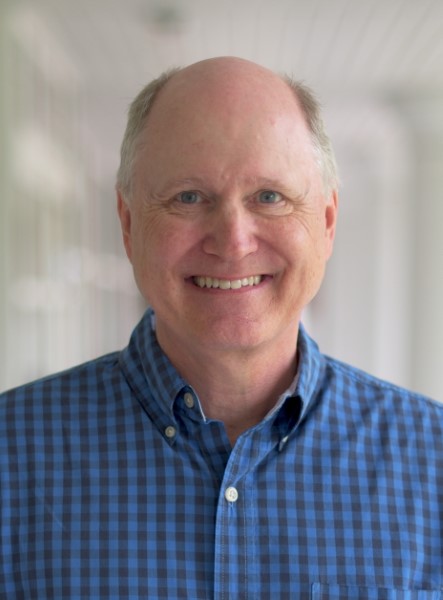
David Stensrud
AMS President
2025–2026

Alan Sealls
AMS President Elect
2025–2026
President: 2026–2027
Executive Director
Brian D. Papa
Acting Executive Director
AMS Executives
Stephanie Armstrong
Associate Executive Director
[email protected]
617-227-2426, ext. 3906
Paul A. T. Higgins
Associate Executive Director
[email protected]
202-737-9032, ext. 9818
Andrea Mancinelli
Chief Financial Officer
[email protected]
617-226-3999
AMS Council
The Council is the principal governing body of the Society. It consists of the elective officers, the last two Past Presidents, and 15 other voting members of the Society, each elected for a three-year term, with one-third retiring each year. Councilors are eligible for reelection but not to consecutive terms. The Executive Director and Secretary–Treasurer shall be members of the Council ex-officio and without the power to vote.
Anjuli S. Bamzai
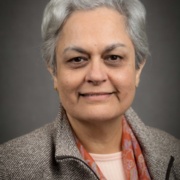
Past President
2025-2027
Stephen Bennett

Councilor
2025-2028
DaNa L. Carlis

Councilor
2023–2026
Bradley R. Colman
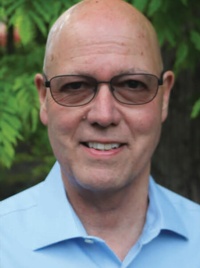
Past President
2024–2026
Rebecca A. DePodwin
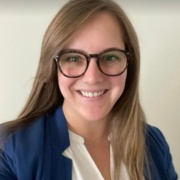
Councilor
2023–2026
Gina Eosco

Councilor
2024–2027
Rong Fu
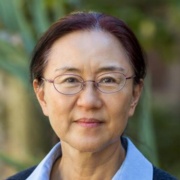
Councilor
2023–2026
Todd Glickman
AMS Secretary
2025–
Stephanie C. Herring

Councilor
2025–2028
Andrew Humphrey
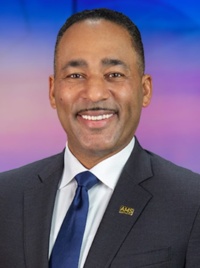
Councilor
2024–2027
Ying-Hwa (Bill) Kuo
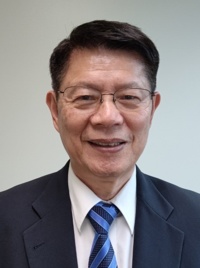
Councilor
2024–2027
John Lanicci

Councilor
2025–2027
Clifford Mass
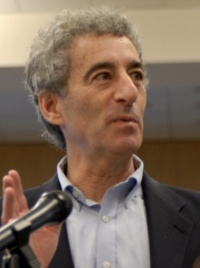
Councilor
2024–2027
Michelle Mainelli
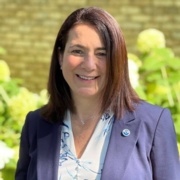
Councilor
2023–2026
Brian D. Papa
Acting Executive Director
2025
Erin Coughlan de Perez
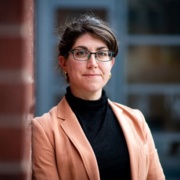
Councilor
2023–2026
Jenny Frankel-Reed

Councilor
2025–2028
Russ Schumacher

Councilor
2025–2028
Alan Sealls

President Elect
2025–2026
Keith L. Seitter
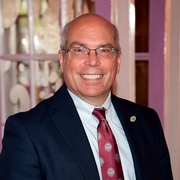
Executive Director Emeritus
2022–
Richard Spaulding
AMS Treasurer
2025–
David Stensrud
AMS President
2025–2026
Executive Committee
The Executive Committee is composed of the President, who shall be the Chair, the President-Elect, who shall be the Vice Chair, the two most immediate Past Presidents, and two additional members of the Council other than those named above, who shall be elected by majority vote of the Council, one each year for a term of two years. It is the executive arm of the Council, reporting to the Council and conducting the affairs of the Society within the limits of the powers conferred on it by the Council.